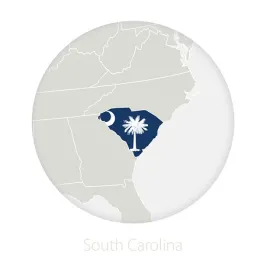On May 3, 2023, the South Carolina General Assembly passed S.164 which overhauled the state’s Certificate of Need (CON) law. The bill was signed by Governor McMaster on May 16, 2023 and is now in effect.
S.164 renames the State Certification of Need and Health Facility Licensure Act to the State Health Facility Licensure Act (the “Act”). As the new name implies, the need for a CON is removed for almost all health care facilities in South Carolina – except for nursing homes and hospitals.
1. Nursing Homes. The Act still requires a CON for nursing homes before:
-
The construction or establishment of a new nursing home
-
A change in the existing bed complement of a nursing home through the addition of one or more beds or change in the classification of licensure of one or more beds
-
Any capital expenditure, which is in excess of the amount prescribed by regulation, and not otherwise exempted under S.C. Code Ann. 44-7-170(B)(1)
-
A capital expenditure by a nursing home which is associated with the addition or substantial expansion of a health services for which specific standards or criteria are prescribed in the State Health Plan
-
The offering of a health service by a nursing home which has not been offered at the facility in the prior twelve months and for which standards or criteria are set forth in the State Health Plan
-
The acquisition of medical equipment by a nursing home which is used for diagnosis or treatment if the total project cost is more than that set forth in regulation
2. Hospitals.
-
CON: The act requires a CON for hospitals before (a) the construction or other establishment of a hospital or (b) a change in the existing bed complement of a hospital through the addition of one or more beds or a change in the classification of licensure of one or more beds. However, the requirement for a CON for hospitals sunsets on January 1, 2027.
-
Licensing Requirement: The Act also changes the licensing requirements for hospitals by adding an additional licensing requirement. Specifically, the Act provides that to be licensed a hospital is prohibited from using economic criteria unrelated to quality of care or professional competency in determining an individual’s qualifications for initial or continuing hospital medical staff membership or privileges.
3. Ambulatory Surgery Centers. The Act also adds several additional licensing requirements for Ambulatory Surgery Centers. Specifically, any ASC not requiring a CON after the effective date of the Act, must:
-
Provide indigent/charity care in one of the amounts listed below after the ASC has been in operation for two calendar years:
-
If the ASC provides care to Medicaid beneficiaries, it must provide uncompensated indigent/charity care to the underinsured or medically indigent in an amount equal to or greater than 2% of its adjusted gross revenue; or
-
If the ASC does not provide care to Medicaid beneficiaries, it must provide uncompensated indigent/charity care to the underinsured or medically indigent in an amount equal to or greater than 3% of its adjusted gross revenue.
-
-
An ASC subject to the indigent/charity care requirement must provide annual reports to demonstrate compliance. Non-compliance will result in a monetary penalty in the amount of the difference between the indigent/charity care services which the facility is required to provide and the amount provided.
-
DHEC is to issue regulations within one year of the effective date of the Act setting forth the necessary duties to comply with the indigent/charity care provisions.
4. Exemptions. The Act provides for exemptions to Certificate of Need review from DHEC.
Similar to prior law, the Act requires that a person seeking an exemption must obtain a written exemption from DHEC prior to undertaking a project that could qualify for exemption. This may be more fully described in regulation. The exemptions from the CON requirements are as follows:
-
Relocations of a licensed hospital in the same county in which the hospital is currently located are exempt from Certificate of Need review as long as:
-
Any Certificate of Need issued to the hospital for a project to be located at the hospital’s existing location has been fulfilled, withdrawn, or has expired in accordance with Section 44-7-230 and the department’s implementing regulations
-
The proposed site of relocation is utilized in a manner that furthers health care delivery and innovation for the citizens of the State of South Carolina
-
-
The purchase, merger, or the acquisition of an existing hospital by another person or health care facility is exempt from Certificate of need review.
-
Crisis stabilization unity facilities are exempt from Certificate of Need review and may not require a written exemption from DHEC.
-
Article 3 of Title 44, Chapter 7 does not apply to:
-
Construction of a new hospital with up to fifty beds in any county currently without a hospital
-
Hospitals owned and operated by the South Carolina Department of Mental Health and the South Carolina Department of Disabilities and Special Needs, except an addition of one or more beds to the total number of beds of the departments' health care facilities existing on July 1, 1988
-
Any federal hospital sponsored and operated by this State
-
Hospitals owned and operated by the federal government
-
5. Project Review Criteria. The Act keeps Section 44-7-190(A) and (B) in place regarding the project review criteria used during the Certificate of Need review process.
However, it adds a provision with additional considerations that “[p]roject review criteria must prioritize timely access to health care services and seek a balance between competition in the marketplace and regulation in the provision of health care and must support reasonable patient choice in health care facilities and services.” The provision requires DHEC to promulgate regulations within one year identifying how it will incorporate these considerations in reviewing Certificate of Need applications.
6. New Deadlines & Time Periods. The Act provides for several new shorter deadlines and time periods for DHEC and CON applicants.
The Act condenses the thirty (30) day deadlines during the CON review process under S.C. Code Ann. Section 44-7-200(D). Specifically, the time period for when DHEC may request additional information regarding a CON application has been reduced from thirty (30) to fifteen (15) days, and a CON applicant now has fifteen (15) days instead of thirty (30) to submit that additional information to DHEC. This change is notable as an applicant who fails to respond within fifteen (15) days instead of thirty (30) days will have its application considered withdrawn.
The Act also keeps in place the requirement that DHEC may not make a decision to approve or deny a CON application earlier than thirty calendar days; however, it reduces the time DHEC staff has to approve or deny a CON application from one hundred twenty (120) to ninety (90) calendar days from the date affected persons are notified that the application is complete, unless a public hearing is timely requested as may be provided for by department regulation.
If a public hearing is requested, the Act reduces the amount of time DHEC has to issue a decision from one hundred fifty (150) to one hundred twenty (120) calendar days from the date affected persons are notified that the application is complete.
7. Discovery Limitations. The Act also places new limitations on discovery in Certificate of Need contested cases:
-
Each party is limited to no more than five witnesses each in a contested case
-
Each party is permitted to take only the deposition of a person listed by an opposing party as a witness who may testify and one Federal Rules of Civil Procedure Rule 30(b)(6) deposition.
-
Each party is now limited to fifteen requests for production each.
-
Parties must now complete discovery within one hundred twenty (120) days after assignment of the case to the administrative law judge.
-
Previous provisions that allowed the Administrative Law Court to lift certain limitations on discovery are now removed.
-
The requirement that the Administrative Law Court must file a final decision no later than eighteen (18) months after the filing of a contested case has been shortened to twelve (12) months.
-
The provision that previously allowed the parties to consent to or the Administrative Law Court to order an extension of this deadline is also removed.
8. Appeals. The Act now provides that an affected person who was a party to a Certificate of Need contested case has the right to appeal directly to the South Carolina Supreme Court instead of the South Carolina Court of Appeals.
9. Attorney’s Fees and Costs Incurred. The Act adds new provisions whereby a party that does not prevail at the Administrative Law Court level or on appeal to the South Carolina Supreme Court will be required to pay reasonable attorney’s fees and costs incurred.
Specifically, the Act provides that if a party that does not prevail in a contested case at the Administrative Law Court when requesting reversal of DHEC’s decision regarding a CON application, when claiming an exemption under Section 44-7-210, or when claiming non-applicability pursuant to Section 44-7-160, the Administrative Law Court shall now award the party whose project is the subject of the appeal reasonable attorney’s fees and costs incurred in the contested case.
If a party does not prevail in an appeal to the Supreme Court when requesting the reversal of the Administrative Law Court’s decision concerning a Certificate of Need application, when claiming an exemption under Section 44-7-170, or when claiming that the article is not applicable pursuant to Section 44-7-160, the Supreme Court shall award the party whose project is the subject of the contested case reasonable attorney’s fees and costs incurred in the appeal.
However, there is an exception whereby the court must not assess attorney’s fees or costs awarded against or to DHEC in any contested case or appeal involving a Certificate of Need application or an exemption request pursuant to Section 44-7-170 or a request for a determination as to the applicability of Section 44-7-160.
Lastly, the provisions regarding frivolous contested cases or a subsequent appeal have been amended to change the definition of “frivolous appeal”. The Act now defines “frivolous appeal” to mean:
A reasonable person in the same circumstances would believe that:
-
The contested case or subsequent appeal was clearly not warranted under existing law and that a good faith or reasonable argument did not exist for the extension, modification, or reversal of existing law
-
The procurement, initiation, or continuation of the contested case or subsequent appeal was intended merely to harass or injure the other party
-
The contested case or subsequent appeal was not reasonably founded in fact or was interposed merely for delay or was merely brought for a purpose other than securing proper discovery or adjudication of the claim upon which the proceedings are based
10. The Certificate of Need Study Committee.
Given these changes, the Act also creates a six-member Certificate of Need Study committee to examine the effect of the repeal of the Certificate of Need program on the quality and quantity of access to healthcare in rural parts of South Carolina. The committee will prepare a report with its work, findings, and any recommendations, including legislative, regulatory, or policy changes by January 1, 2024.






 />i
/>i

